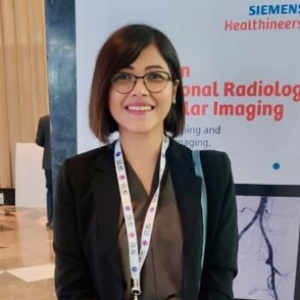Title : Unmasking STEMI Impostors: A case exposing diagnostic dilemmas and crucial clinical ramifications
Abstract:
Introduction: STEMI mimickers have been described in literature for many decades, but each clinical interaction teaches us new ways to tackle these medical emergencies. This case underscores the need to individualize every case in an effort to avoid delaying life-saving treatment and preventing complications from protocol based but potentially harmful management strategies like thrombolysis, for instance, in cases like aortic dissection, subarachnoid hemorrhage or myopericarditis.
Case: This abstract presents a case study of a 32-year-old non-diabetic, non-hypertensive woman who was admitted with sudden-onset worsening breathlessness and one episode of syncope. Initial electrocardiogram (ECG) findings revealed ST elevations in anterior wall leads coupled with complete atrioventricular (AV) block, raising suspicion for ST-elevation myocardial infarction (STEMI). 2D-echocardiography demonstrated anterior wall hypokinesia and moderate left ventricular dysfunction. After prompt initial stabilization, she was shifted for coronary angiography in with intention of primary PCI with severe bradycardia prompting urgent placement of a temporary pacemaker. Despite normal coronary angiography results, given the atypical presentation and absence of typical cardiovascular risk factors, further investigation into alternative etiologies was pursued. Intravenous methylprednisolone therapy was initiated based on suspected myocarditis or sarcoidosis. Over the course of seven days in the intensive care unit (ICCU), the patient's echocardiographic abnormalities resolved, and sinus rhythm was restored on ECG. Notably, subsequent cardiac magnetic resonance imaging (CMRI) findings showed patchy gadolinium enhancement in the apical, anterior, and septal walls with improving LV dysfunction, consistent with a diagnosis of myocarditis, though cardiac sarcoidosis could not be entirely ruled out at this point, emphasizing the diagnostic challenge posed by STEMI mimickers. A complete search for extra-cardiac sarcoidosis and rheumatology review ruled sarcoidosis to be an unlikely cause and patient was discharged on tapering doses of oral steroids to be continued for 8 weeks.
Discussion: This case underscores the critical importance of early recognition of STEMI mimickers, which, if left undiagnosed, can have life-threatening consequences. Furthermore, it highlights the necessity of a comprehensive diagnostic approach that considers alternative etiologies, particularly in cases where clinical and imaging findings deviate from traditional STEMI presentations. By shedding light on the diagnostic dilemmas and therapeutic challenges encountered in this case, our findings underscore the imperative for heightened clinical vigilance and expanded diagnostic paradigms in the evaluation of acute cardiac syndromes. This case report contributes to the growing body of literature aimed at enhancing our understanding of STEMI mimickers and optimizing patient outcomes through timely intervention and targeted management strategies.
Audience Take Away:
- Attendees of this presentation will gain valuable insights into the complexities of diagnosing and managing ST-elevation myocardial infarction (STEMI) mimickers, as demonstrated through a compelling case study, particularly in the absence of typical risk factors. Secondly it shows that prompt interventional measures even on strong clinical suspicion can be lifesaving. Moreover, the presentation underscores the critical role of interdisciplinary collaboration and advanced imaging modalities, such as cardiac magnetic resonance imaging (CMRI), in reaching accurate diagnoses and guiding appropriate treatment strategies
- This presentation offers invaluable insights that directly impact healthcare professionals in their daily practice. First responders and clinicians in field should be attuned to make decisions on STEMI mimickers about referral and immediate management strategies. This case study may help attendees be better equipped to navigate similar clinical challenges in their own practice, ultimately enhancing the quality of care delivered to patients with acute cardiac syndromes
- Faculty members engaged in research or teaching related to cardiology, emergency medicine, internal medicine, or medical education could find this research beneficial in several ways. First, in-depth analysis of rare cardiac presentations, like STEMI mimickers, lays groundwork for broader research into similar cases, aiding in refining diagnostic criteria, prognostic indicators, and treatment outcomes. Second, it may influence the development or refinement of clinical practice guidelines regarding acute cardiac syndromes, potentially improving patient care standards. And finally, given the complex nature of this case, interdisciplinary collaboration among specialists in cardiology, radiology, and critical care medicine may prove to be essential for investigating STEMI mimickers and devising comprehensive management approaches



